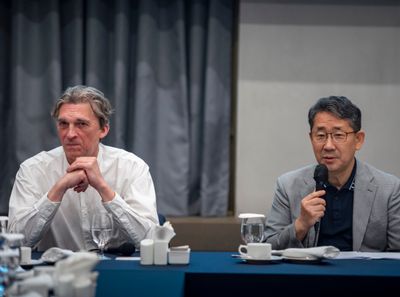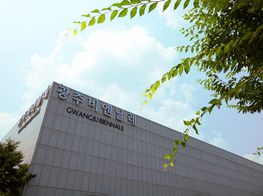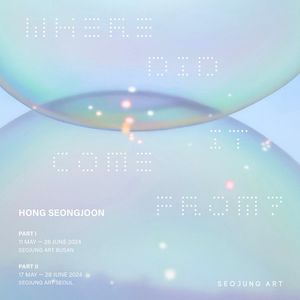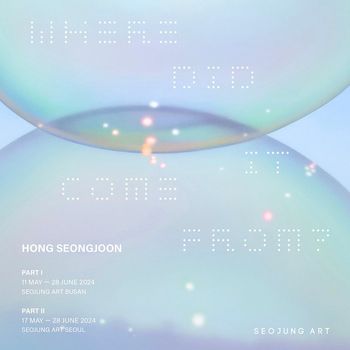Gwangju Biennale 2024 Draws Inspiration from Shamans’ Chants
Artistic Director Nicolas Bourriaud has proposed pansori, a Korean form of musical storytelling, as a way of framing artists' ideas about space.

Gwangju Biennale Foundation president Park Yang-woo (right) and the 15th edition's artistic director, Nicolas Bourriaud (left).
The Gwangju Biennale Foundation and curator Nicolas Bourriaud have announced the title and theme of the event's 15th edition, which will open in September 2024.
The biennial is titled PANSORI—a soundscape of the 21st century, and refers to a musical form which originated in southwest Korea in the 17th century. Pansori, which literally means 'the sound of the public place', probably began as shamans' narrative songs accompanied by drumming.
While the biennial uses music as a structuring device, its content will be more in keeping with Bourriaud's excellent 9th Taipei Biennial in 2014, titled The Great Acceleration: Art in the Anthropocene.
The next Gwangju Biennale is ostensibly about space, but humanity's impact on the planet, the other species we share it with, and one another, remain front of mind.
'From social distancing due to the pandemic to climate change, including flooding, desertification, and rising sea levels due to global warming, humanity's relationship with space has changed dramatically over the past few years,' Bourriaud said. 'It is time for a profound discussion about our changed senses and perceptions of space.'
The housing crisis, the race to settle Mars, and mass extinctions are offered as symptoms of a planet that is becoming less habitable, further complicating our relationships to space.
The exhibition will be structured in three sections following a narrative that the organisers said moves 'from the human density of urban space to the non-human worlds, either microscopic or cosmic. From a saturated planet to the search for the "big outdoors".'
The first section, the Larsen effect, uses the metaphor of audio feedback to demonstrate the deleterious effects of overcrowding.
In the second, mass extinctions will be addressed through Brazilian anthropologist Eduardo Viveiros de Castro's observation that industrialised countries live in a world where other living creatures have become an afterthought — rendering us opera singers without an orchestra.
And in the third section, a primordial sound—the Chinese Qi, the Buddhist Om, or the Big Bang—offers a portal to both the cosmos and the molecular world. —[O]










































































































































































